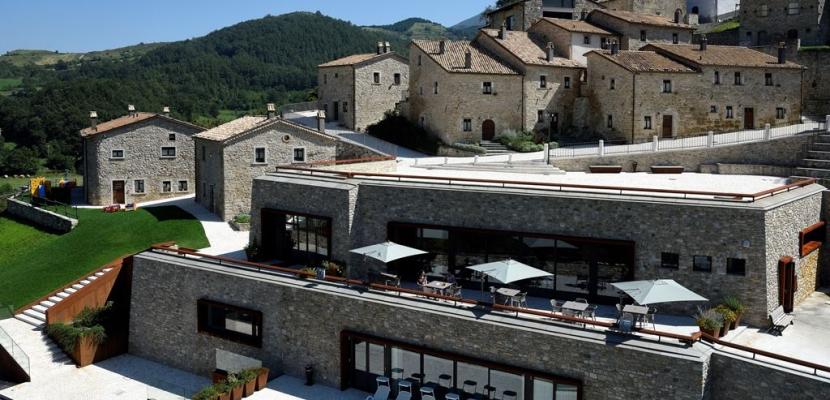
Borgotufi Albergo Diffuso (scattered hotel)

About this good practice
testo rivisto e sintetizzato in 1500 caratteri spazi inclusi:
Borgo Tufi was created to tackle depopulation and degradation of rural villages in Molise. Castel del Giudice faced population decline and abandonment of historic structures. The local community, with entrepreneurs and the municipality, transformed the village into a "scattered hotel" (albergo diffuso) to regenerate the urban fabric and promote sustainable experiential tourism.
The project refurbished old buildings into independent units offering modern hotel services, using local materials and traditional techniques to preserve cultural integrity. Borgo Tufi includes a restaurant featuring local products, a wellness center, and cultural activities, which attract tourists, boost the local economy, and protect cultural heritage.
The municipality played a key role, acquiring abandoned properties to restore them and create the hotel’s infrastructure. Ownership is shared between public and private entities: the municipality owns part of the houses, while a private company manages the hotel, ensuring professional operation and sustainability. This public-private partnership aligns economic development with cultural and environmental conservation.
Main stakeholders include the municipality, local entrepreneurs, and residents, who have benefited from new jobs and economic opportunities. Tourists enjoy an authentic and sustainable experience while contributing to the preservation and enhancement of the region’s heritage.
Expert opinion
Resources needed
To set up and run BorgoTufi, significant financial and human resources were required. The project involved an investment of approximately €3 million, sourced from both public and private funds.
Evidence of success
This practice is considered good due to its successful revitalization of a rural village, creating an "albergo diffuso" (scattered hotel) for 100 guests and a 35-hectare organic orchard. The project engaged both the local community and private entrepreneurs, showcasing effective public-private collaboration. Tangible results include renovated stables, 150 new beds, a restaurant, spa, and job creation. Numerous awards underscore its success.
Potential for learning or transfer
The BorgoTufi approach could be highly relevant in addressing common challenges in rural regions across various European countries. These areas often face issues of depopulation, economic decline, and abandonment of rural villages. BorgoTufi provides a successful model for the revitalization and enhancement of these areas, transforming abandoned buildings into economic and cultural assets. Local and regional authorities could consider adopting similar strategies to stimulate economic and social development in their rural areas, actively involving local communities and private partners to maximize positive impact. Moreover, the adaptability and success of the BorgoTufi model in balancing economic growth with cultural preservation make it a compelling solution for rural revitalization efforts across Europe. Its emphasis on community involvement and sustainable tourism aligns with contemporary development goals offering a holistic approach to address multifaceted challenges in rural areas
Further information
Website
Good practice owner
You can contact the good practice owner below for more detailed information.
